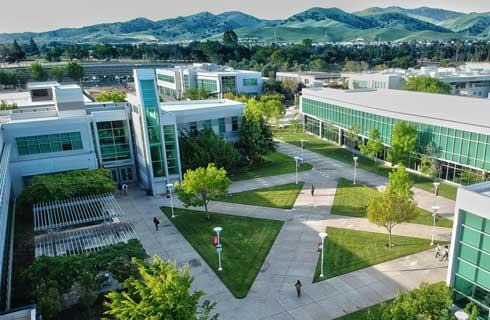气候变化的人文学科文学士
Bachelor of Arts in Human Dimensions of Climate Change

学历文凭
Bachelor Degree

专业院系
College of Liberal Arts and Sciences

开学时间

课程时长

课程学费

国际学生入学条件
A graduating high school student (regardless of number of college credits taken while in high school) or a high school graduate or GED recipient who has attempted fewer than 12 college credits after graduation and is applying to a four-year bachelor’s degree program.
TOEFL (including the TOEFL iBT Special Home Edition) – minimum score of 79 (iBT) or 550 (paper-based test) .
TOEFL Essentials – minimum score of 8.5. .
IELTS (including the IELTS Indicator online test) – minimum score of 6.5. .
PTE (Pearson Test of English) – minimum score of 53. .
DET (Duolingo English Test) – minimum score of 105.
Application deadline - Fall Admission: March 1; Spring Admission: November 1
IDP—雅思考试联合主办方

雅思考试总分
6.5
- 雅思总分:6.5
- 托福网考总分:79
- 托福笔试总分:160
- 其他语言考试:PTE (Pearson Test of English) - minimum score of 53.
CRICOS代码:
申请截止日期: 请与IDP联系 以获取详细信息。
课程简介
Climate Change is one of the leading environmental and human problems facing the world today. Melting glaciers and rising oceans with landward-moving shorelines are one side of the issue, and shifting temperature and moisture patterns and the responses of earth’s biota to these changes add to the dilemma. The other side of the problem is the human dimension, both with regards to impact and response. Humans contribute to global warming and environmental degradation, and humans alone can provide solutions to these problems through successful policy initiatives at local through global scales. Solutions to the many problems arising from climate change will only be found with an understanding of the processes that govern both climate and human culture. Successful policy decisions to mitigate climate change will be based on solid science and social science related to culture. Social scientists have an extremely important role to play in assisting state, national, and world decision makers in understanding environmental problems and finding solutions to them. Social scientists work with policy makers, conduct research among local populations around the world, and on the basis of this work devise policies that take into account the social and cultural implications of policy decisions from local to international scales. With core faculty situated in the Anthropology Department, this degree program addresses these important dimensions of climate change. Anthropologists draw their data from all known human societies. Social anthropologists conduct extended periods of fieldwork in communities around the world; physical anthropologists and archaeologists reconstruct those of the past. As a result of this work, anthropologists have built up robust models and explanations of similarity and variance across cultures. They are unusually well equipped to investigate and understand responses to climate change by people whose cultural backgrounds may be radically different from those of the western world. They have a detailed knowledge of how environment and climate shape cultures, and of how cultures shape their environments. They are also able to devise policies that take cultural differences into account in devising and managing climatic solutions.
相关申请
 预科
预科 奖学金
奖学金 实习机会
实习机会 在校学习
在校学习 跨境学习
跨境学习 校园授课-线上开始
校园授课-线上开始 在线/远程学习
在线/远程学习
开学时间&学费
学费信息仅供参考,请与IDP联系以获取详细信息
| 开学时间 | 时长 | 学费 | 地点 |
|---|
本校相关课程

动物学理学硕士
学历文凭
Masters Degree
开学日期
课程费用总额


野生动物生态学哲学博士
学历文凭
Ph.D.
开学日期
课程费用总额


野生动物保护硕士
学历文凭
Masters Degree
开学日期
课程费用总额


野生动物生态学理学硕士
学历文凭
Masters Degree
开学日期
课程费用总额


西班牙语教学文学硕士
学历文凭
Masters Degree
开学日期
课程费用总额


Master of Social Work
学历文凭
Masters Degree
开学日期
课程费用总额

其他相关课程

Master of Science in Chemical Engineering- Climate Solutions
 哥伦比亚大学
哥伦比亚大学泰晤士高等教育世界大学排名:20
学历文凭
Masters Degree
开学日期
课程费用总额


Skills Certificate in Climate Protection Professional
斯凯兰学院
学历文凭
Advanced Certificate
开学日期
课程费用总额


Bachelor of Science in Chemistry - Environmental Chemistry
 圣弗朗西斯大学
圣弗朗西斯大学学历文凭
Bachelor Degree
开学日期
课程费用总额


Master of Science in Earth Sciences - Climate - Ocean - Atmosphere (Climate Sciences)
 加州大学圣地亚哥分校
加州大学圣地亚哥分校学历文凭
Masters Degree
开学日期
课程费用总额


气候学博士
 不列颠哥伦比亚大学
不列颠哥伦比亚大学学历文凭
Ph.D.
开学日期
课程费用总额


环境化学理学学士
 丹佛大学
丹佛大学泰晤士高等教育世界大学排名:571
学历文凭
Bachelor Degree
开学日期
课程费用总额











